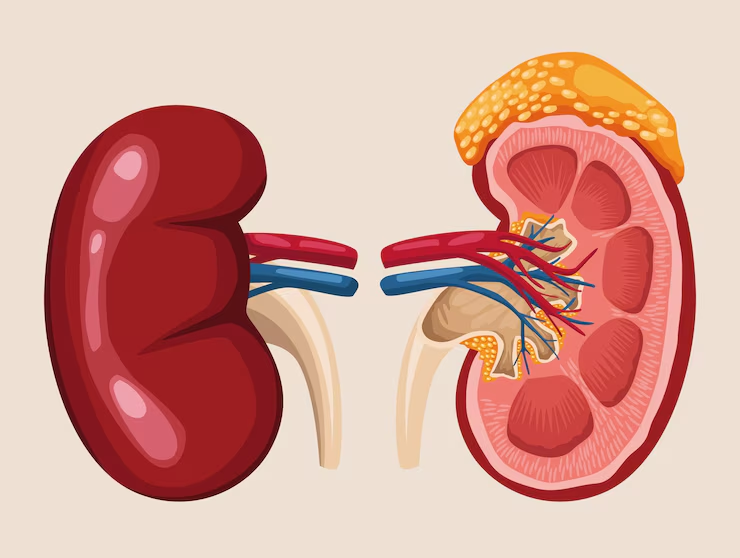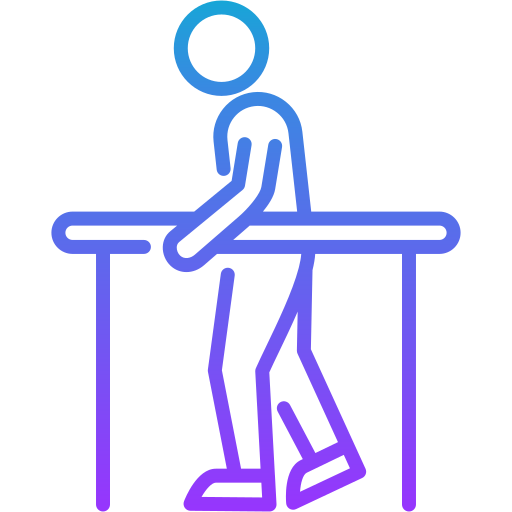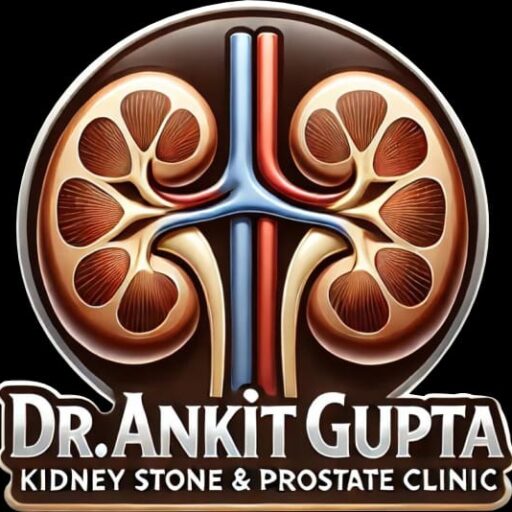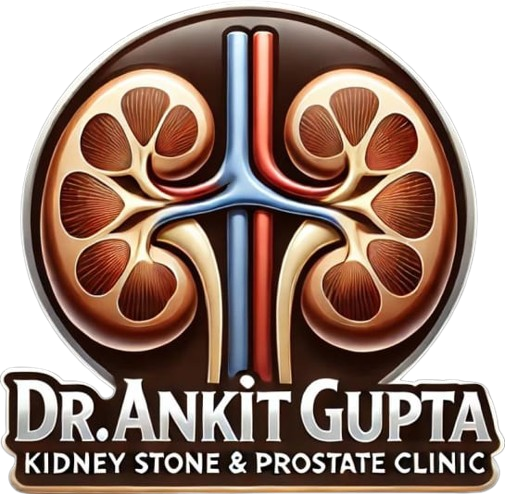Onco Urology
Home > Onco-Urology

Onco Urology
Who is a Urologic Oncologist?
Urologic oncologist is a trained professional who provides surgical treatment for patients who suffer from urologic cancers. Uro-oncologist acts as a mediator who coordinates with medical oncologists, support services, and radiation oncologists to provide efficient treatment to patients.
The outcome of cancer treatment varies according to the stage of cancer. Kidney specialists at Medanta Lucknow have a proper treatment plan for each stage of urologic cancer. Management options for urologic cancer can vary from active surveillance to the multi-modal approach, which includes chemotherapy, radiation, and surgery.
The goal of the best urology treatment in Lucknow is to provide comprehensive and personalised care for patients suffering from urologic cancers by using optimum treatment options and state-of-the-art equipment.
Know More
About Urologic Oncologist
-
 Symptoms
Symptoms
-
 Diagnosis
Diagnosis
-
 How We Perform
How We Perform
-
 Why Is Treatment Needed?
Why Is Treatment Needed?
-
 Treatment
Treatment
-
 Rehabilitation
Rehabilitation
-
 Prevention
Prevention
Early detection of urological cancers is crucial for effective treatment. Common symptoms that may indicate the presence of urological cancers include:
Blood in Urine (Hematuria): May appear pink, red, or brown.
Frequent or Painful Urination: Especially during the night.
Pelvic or Back Pain: Persistent discomfort.
Unexplained Weight Loss: Without changes in diet or exercise.
Fatigue: Feeling unusually tired.
Changes in Urine Volume or Incontinence: Difficulty in controlling urination.
Loss of Appetite: Not related to other causes.
If you experience any of these symptoms, it’s important to consult a healthcare professional for evaluation and diagnosis.
Diagnosing urological cancers involves a combination of clinical evaluation, imaging studies, and laboratory tests:
Imaging Tests: CT scans, MRIs, ultrasounds, and X-rays to visualize tumors.
Cystoscopy/Ureteroscopy: Direct visualization of the bladder and ureters using a camera.
Biopsy: Tissue samples taken to confirm the presence of cancer cells.
Blood and Urine Tests: To detect abnormalities and tumor markers.
Prostate-Specific Antigen (PSA) Test: For prostate cancer screening.
Urine Cytology: Examination of urine for cancer cells, particularly in bladder cancer.
These diagnostic tools help in determining the type, location, and stage of cancer, guiding the treatment plan.
Urologic Oncology involves the diagnosis and surgical treatment of cancers affecting the urinary system and male reproductive organs. Urologic oncologists specialize in managing complex cases using advanced techniques to ensure effective cancer control and preserve function when possible.
Key Points:
Anesthesia Administration: General or regional anesthesia is administered depending on the procedure and patient condition to ensure a pain-free experience.
Surgical Approach: Minimally invasive or open surgery may be used to remove tumors or cancerous organs such as the kidney, bladder, prostate, or testicles. Lymph nodes may also be removed if cancer has spread.
Organ Preservation: When possible, surgeons aim to preserve as much of the healthy tissue or organ as feasible to maintain urinary or reproductive function.
Closure and Dressing: Incisions are closed using sutures or staples, and sterile dressings are applied to promote healing and reduce infection risk.
Post-Surgery Monitoring: Patients are monitored closely for complications, recurrence of cancer, and overall recovery progress. Lab tests, imaging, and follow-up visits are part of ongoing care.
These procedures typically last several hours depending on complexity. Most patients stay in the hospital for a few days and continue follow-up care with their urologic oncologist. Early diagnosis and specialized surgical care significantly improve outcomes and survival rates.
👨⚕️ Role of a Urologic Oncologist
Urologic oncologists specialize in diagnosing and treating cancers of the urinary tract and male reproductive organs, including kidney, bladder, prostate, and testicular cancers. They provide surgical and medical management, coordinate with other specialists, and tailor treatments to individual needs. Early detection and expert care improve survival rates and quality of life. American Urological Association
⚠️ Risks of Untreated Urologic Cancers
Tumor Growth: Delayed treatment allows cancer to grow and spread, reducing treatment effectiveness.
Organ Damage: Tumors in the kidneys or bladder can impair organ function and cause bleeding or obstruction. Mayo Clinic
Metastasis: Cancer may spread to bones, lungs, or liver, leading to severe complications and reduced survival.
Urinary Symptoms: Untreated cancers can cause pain, blood in urine, difficulty urinating, and infections.
Reduced Survival: Early intervention improves outcomes—delays can significantly lower life expectancy. National Cancer Institute
🏥 Treatment Options
Surgery: Removal of tumors or affected organs, often the primary treatment for localized cancers. Minimally invasive techniques may be used. Cleveland Clinic
Targeted Therapy & Immunotherapy: Advanced options that fight cancer at the molecular level or boost the immune system to attack cancer cells, improving outcomes with fewer side effects.
Treatment for urological cancers is tailored to the individual’s condition, considering factors like cancer type, stage, and overall health:
Surgery: Removal of tumors or affected organs, such as prostatectomy, nephrectomy, or cystectomy.
Chemotherapy: Use of drugs to kill cancer cells or stop their growth.
Radiation Therapy: High-energy rays to target and destroy cancer cells.
Immunotherapy: Stimulating the body’s immune system to fight cancer.
Targeted Therapy: Drugs that target specific cancer cell mechanisms.
Robotic and Laparoscopic Surgery: Minimally invasive techniques for precise tumor removal.
A multidisciplinary team approach is often employed to provide comprehensive care.
Post-treatment rehabilitation is essential for recovery and improving quality of life:
Physical Therapy: To regain strength and mobility.
Nutritional Support: Guidance on diet to support healing and overall health.
Psychological Counseling: Addressing emotional and mental health needs.
Pain Management: Strategies to manage and alleviate pain.
Follow-up Care: Regular monitoring for recurrence and managing side effects.
Effective rehabilitation helps patients return to daily activities and maintain a good quality of life.
While not all urological cancers can be prevented, certain lifestyle changes may reduce the risk:
Avoid Smoking: Smoking is a significant risk factor for bladder and kidney cancers.
Maintain a Healthy Diet: Rich in fruits, vegetables, and low in processed foods.
Regular Exercise: Helps maintain a healthy weight and overall health.
Limit Alcohol Consumption: Excessive alcohol intake can increase cancer risk.
Regular Screenings: Especially for those with a family history or other risk factors.
Protective Measures: Use of protective equipment in occupational settings to avoid exposure to harmful substances.
Adopting these preventive measures can contribute to overall health and may lower the risk of developing urological cancers.
WHY US?
Why Choose Dr. Ankit Gupta
At our clinic, Dr. Ankit Gupta offers expert care in urology, kidney transplantation, and andrology. With extensive experience in reconstructive and microscopic urology, as well as proficiency in laparoscopic and robotic surgeries, Dr. Gupta employs advanced techniques to ensure optimal outcomes and smoother recoveries for his patients.
70,000+
Patients Experience
10,000+
endoscopic surgeries
1000+
Urologic Oncologist surgeries
1000+
Invasive Urology Surgeries
Check Surgery Cost
We believe in transparency. You can enquire about the Surgery Cost and we will help you with complete detailed treatment process till your recovery.
Frequently Asked Questions
A urologic oncologist is a doctor who specializes in diagnosing and treating cancers of the urinary system and the male reproductive system, including prostate, bladder, kidney, testicular, and penile cancers.
They treat cancers such as prostate cancer, bladder cancer, kidney cancer, testicular cancer, and penile cancer.
While a general urologist treats a wide range of urinary and male reproductive conditions, a urologic oncologist has advanced training in the surgical and medical management of urologic cancers.
You should see a urologic oncologist if you’ve been diagnosed with a urologic cancer, or if you have concerning symptoms like blood in urine, a testicular lump, or abnormal PSA levels.
Treatment options may include surgery, chemotherapy, radiation therapy, immunotherapy, targeted therapy, or a combination depending on the type and stage of the cancer.
Yes, many urologic cancers can be treated with laparoscopic or robotic-assisted surgeries, which may offer faster recovery, less pain, and smaller incisions.
Diagnosis may involve imaging tests (CT, MRI, ultrasound), urine tests, blood tests (like PSA), and biopsies.
While not all urologic cancers can be prevented, maintaining a healthy lifestyle, avoiding smoking, managing body weight, and regular screenings (especially for prostate and bladder cancer) can reduce the risk.
What Our Patients Sayy
Based on 160 reviews








My experience with Dr. Ankit Gupta was very good. He treated my left kidney stone with laser surgery. I was discharged the next day after the surgery. He is the best urologist and kidney stone doctor in Gurgaon. 🙏
Best Regards
Subodh Rathore

